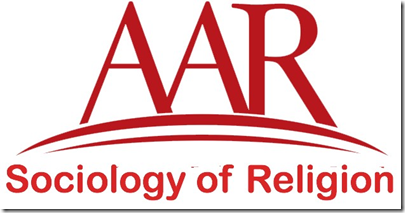RICERCA QUALI-QUANTITATIVA SULLA RELIGIOSITÀ IN ITALIA
Webinars di presentazione delle pubblicazioni
(con il patrocinio dell’Associazione Italiana di Sociologia e delle Sezioni di Metodologia e Sociologia della Religione)
Ventidue anni dopo la ricerca su La religiosità in Italia (V. Cesareo, R. Cipriani, F. Garelli, C. Lanzetti, G. Rovati: Mondadori, Milano, 1995), l’indagine condotta nel 2017 riguarda 3238 intervistati con questionario e 164 soggetti (opportunamente selezionati) interpellati con interviste aperte (tipo UNI) o semidirettive (tipo MIX).
La stratificazione del campione qualitativo ha riguardato tre categorie relative al titolo di studio (livello dell’obbligo, diploma medio-superiore, laurea), alla distinzione di genere, alla residenza (piccoli comuni, comuni medi, grandi città), alla distribuzione geografica (nord, centro, sud e isole) ed all’età (giovani, adulti, anziani). Si è testata la soluzione di un’intervista completamente aperta, senza domande predefinite (tipo UNI): per quasi la metà del campione, cioè 78 casi, gli intervistatori hanno cercato di ottenere narrazioni, riflessioni, valutazioni ed interpretazioni non sollecitate attraverso domande specifiche sulla religiosità; per gli altri 86 soggetti consultati, la prima parte dell’intervista è stata interamente libera e la seconda ha riguardato alcuni concetti-stimoli (tipo MIX): la vita quotidiana e festiva, la felicità ed il dolore, la vita e la morte, Dio, la preghiera, le istituzioni religiose e papa Francesco.
I risultati dell’analisi qualitativa sono stati corroborati anche da sofisticati strumenti analitici (alcuni anche quantitativi), tra cui: il programma T2K (Text to Knowledge), l’analisi delle corrispondenze lessicali, la procedura VoSpec (Vocabulaire Spécifique des Groupes d’individus), la social network analysis e la grounded theory. Inoltre un foglio di analisi simile ad un questionario semi-strutturato è stato applicato ai testi delle interviste, con l’intenzione di individuare modelli, valori e rappresentazioni ricorrenti.
In definitiva è stata implementata una serie di soluzioni che rientrano fra i mixed methods.
L’ASSOCIAZIONE ITALIANA DI SOCIOLOGIA
E LE SEZIONI DI METODOLOGIA E SOCIOLOGIA DELLA RELIGIONE
INVITANO A PARTECIPARE AD UNA SERIE DI WEBINARS
CON DIBATTITO APERTO A TUTTI I PARTECIPANTI
Partecipa tramite computer o app per dispositivi mobili a partire da 30 minuti prima dell’inizio
CTRL + clic sul seguente link per collegarsi:
https://teams.microsoft.com/l/meetup-join/19:meeting_MjZhMTk5MzUtYWEwZi00NjIyLTk3ZWMtYzA5MmI4ODM4NzI0@thread.v2/0?context={%22Tid%22:%22ffb4df68-f464-458c-a546-00fb3af66f6a%22,%22Oid%22:%22bd87d4d3-4a08-44bc-aaff-224c11494bfa%22}
Programma
Sabato 10 aprile 2021, ore 10-12
Franco Garelli, Gente di poca fede. Il sentimento religioso nell’Italia incerta di Dio, il Mulino, Bologna, 2020, pp. 256.
Moderatore: Vittorio Cotesta
Relatori: Giuseppe Giordan, Roberta Ricucci
Correlatrice: Sonia Stefanizzi
Sabato 17 aprile 2021, ore 10-12
Roberto Cipriani, L’incerta fede. Un’indagine quanti-qualitativa in Italia, FrancoAngeli, Milano, 2020, pp. 500.
Moderatore: Enzo Pace
Relatori: Maria Carmela Agodi, Costantino Cipolla
Correlatore: Marco Marzano
Venerdì 14 maggio 2021, ore 17-19
Cecilia Costa, Barbara Morsello (a cura di), Incerta religiosità. Forme molteplici del credere, FrancoAngeli, Milano, 2020, pp. 256.
Moderatrici: Cecilia Costa, Barbara Morsello
Relatrici: Milena Gammaitoni, Katiuscia Carnà, Eleonora Sparano, Martina Lippolis
Correlatrice: Verónica Roldán
Venerdì 21 maggio 2021, ore 17-19
Alberto Quagliata (a cura di), Il dogma inconsapevole. Analisi del fenomeno religioso in Italia: il contributo qualitativo della Grounded Theory costruttivista, FrancoAngeli, Milano, 2020, pp. 146.
Moderatore: Alberto Quagliata
Relatrici: Lavinia Bianchi, Patrizia Ascione
Correlatrice: Martina Lippolis
Venerdì 28 maggio 2021, ore 14,30-16,30
Roberto Cipriani, Maria Paola Faggiano, Maria Paola Piccini, La religione dei valori diffusi. Intervista qualitativa e approccio misto di analisi, FrancoAngeli, Milano, 2020, pp. 190.
Moderatore: Maria Paola Faggiano
Relatrici: Raffaella Gallo, Maria Dentale, Marina Lippolis
Correlatore: Gianni Losito
Sabato 29 maggio 2021, ore 10-12
Gabriella Punziano, Le parole della fede. Espressioni, forme e dimensioni della religiosità tra pratiche e sentire in Italia, FrancoAngeli, Milano, 2020, pp. 178.
Moderatrice: Enrica Amaturo
Relatori: Antonio Camorrino, Amalia Caputo, Augusto Cocorullo
Correlatrice: Rita Bichi
Martedì 8 giugno 2021, ore 10-12
Andrea Cimino, Felice Dell’Orletta, Giulia Venturi (a cura di), La fede dichiarata. Un’analisi linguistico-computazionale, FrancoAngeli, Milano, 2021.
Moderatrice: Simonetta Montemagni
Relatori: Andrea Cimino, Felice Dell’Orletta, Giulia Venturi
Correlatori: Domenico Schiattone, Martina Lippolis
Per ulteriori informazioni sulle pubblicazioni: https://www.ciprianiroberto.it/ricerca-sulla-religiosita-in-italia/
www.icsor.it
—
www.ciprianiroberto.it
https://www.ciprianiroberto.it/ricerca-sulla-religiosita-in-italia/

